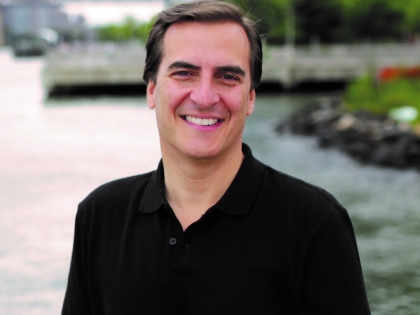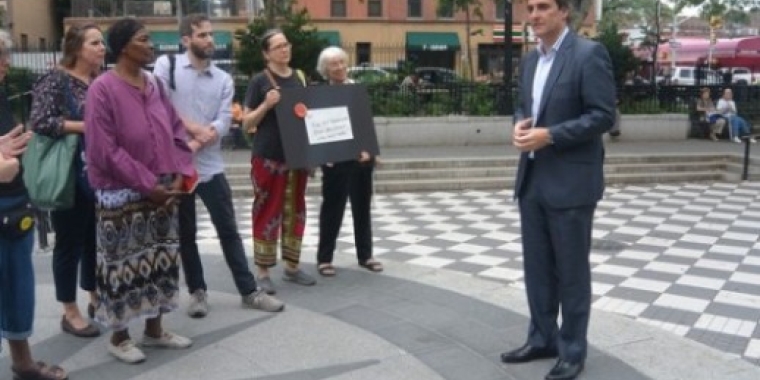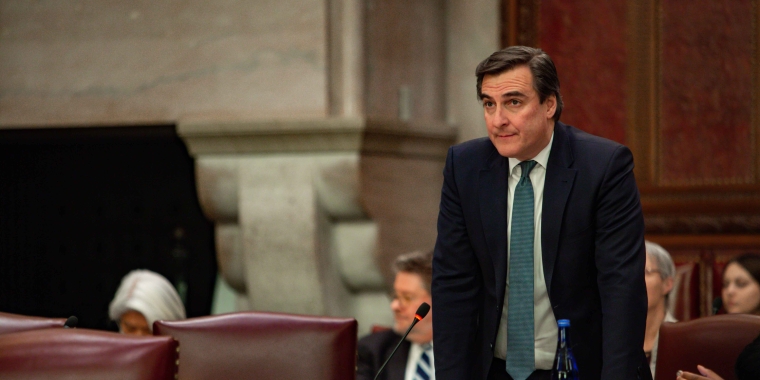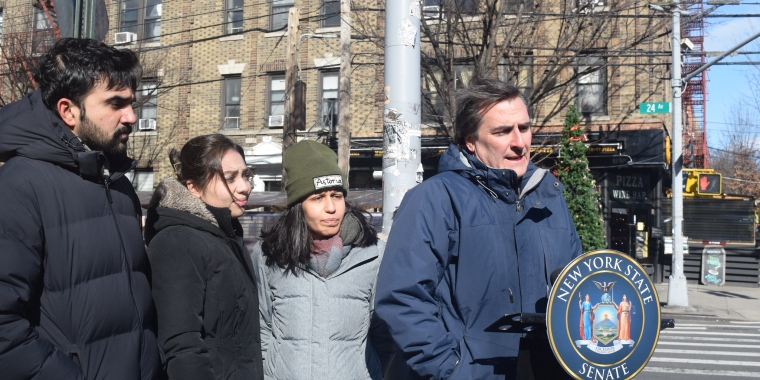
Gianaris Joins Activists to Demand an End to Solitary Confinement

A statewide organization, dedicated to ending the use of solitary confinement in the state prison system, called on Gov. Andrew Cuomo and the state Legislature to pass the Humane Alternatives to Long Term Solitary Confinement Act, known as HALT, immediately upon returning to session in January.
A dozen members of CAIC, the Campaign for Alternatives to Isolated Confinement, were joined at Athens Square Park by state Sen. Michael Gianaris (D-Astoria) last week, less than a mile from Rikers Island.
“At this moment there are men, women and children who are questioning reality, hearing voices, and crying tears of torture because our legislators refuse to act,” Johnny Perez, Safe Reentry Advocate at the Urban Justice Center and a survivor of solitary confinement, said June 23. “Today, and every 23rd, we remind our legislators that there are people just like them held in these cells. If we value human dignity and worth, then we have a moral obligation to act. Supporting the HALT Act is that act.”
CAIC’s actions take place on the 23rd of each month to recognize the 23 hours each day that a person in solitary confinement is isolated. To dramatize their message, CAIC members provided virtual reality goggles to give the public a sense of the experience inside a solitary confinement cell.
“They do a good job raising awareness of the horrors of solitary confinement,” Gianarais said. “Look, I’ve been an advocate of criminal justice reforms such as the cash bail elimination proposal and new simplified Miranda Rights for juveniles. I’m just always looking to improve the way our criminal justice system works.”
Gianaris, who is considered to be a potential successor to state Attorney General Eric Schneiderman, said there is a need to reform solitary confinement practices and create more humane and effective alternatives to such punishment.
“Someone who breaks the law should be punished, but while they’re serving their time they must be rehabilitated,” Gianaris said. “Data shows that excessive use of solitary is counterproductive. The prisoner becomes a more dangerous member of the prison population after extended time in solitary confinement.”
According to the Association of State Correctional Administrators, the percentage of New York’s state prison population that is in solitary is nearly double the national average. While the United Nations recently adopted the “Mandela Rules” prohibiting solitary confinement exceeding 15 days, New York places no limit on total time a person may spend in isolation.
Some have spent years, some decades, locked in a cell no bigger than an elevator. The sensory deprivation, lack of normal human interaction, and extreme idleness of solitary can lead to intense suffering and severe psychological and physical damage.
The movement to end the use of solitary confinement gained traction after the 2015 suicide of Kalief Browder, a young man who spent more than 1,000 days on Rikers Island, nearly 700 of them in solitary confinement. Browder had been accused of stealing a backpack when he was 16, but his family couldn’t afford the $3,000 bail.
Despite 31 court appearances in three years, Browder never received a trial and the charges were eventually dropped. The experience left him depressed and ultimately suicidal, according to his family.
“Being placed in solitary confinement mimics and magnifies all the faults encountered today in the criminal justice system, which easily allow innocent people to become incarcerated in the U.S.,” Gisele Ribiero, a survivor of solitary confinement and a member of CAIR, said. “For the poor, a prosecutor’s allegation easily turns into a guilty plea without trial and consequently into a conviction in an evil ‘plea bargain market.’ HALT is a fundamental step to any serious prison and criminal justice reform.”
http://www.timesledger.com/stories/2016/27/gianarissolitary_2016_07_01_q.html



